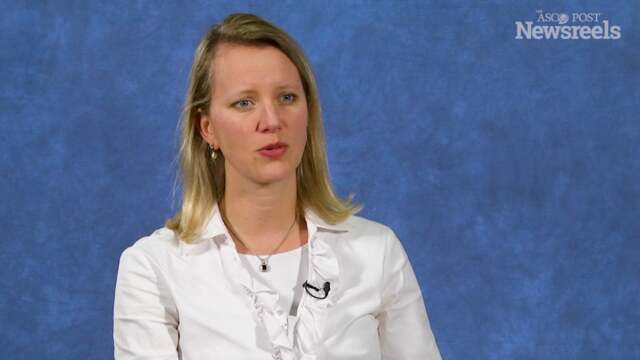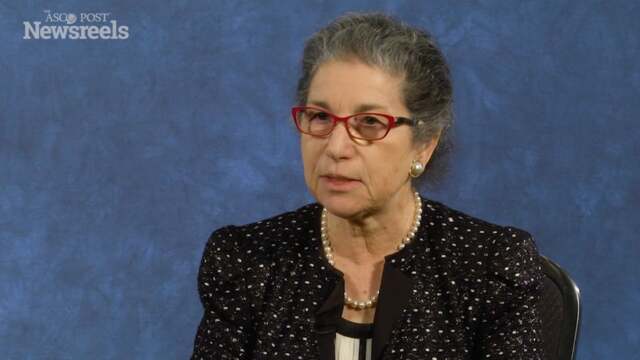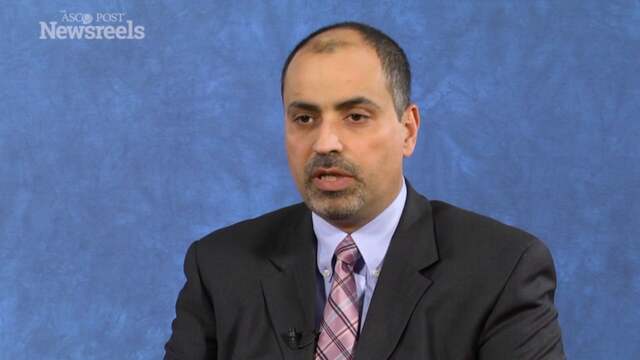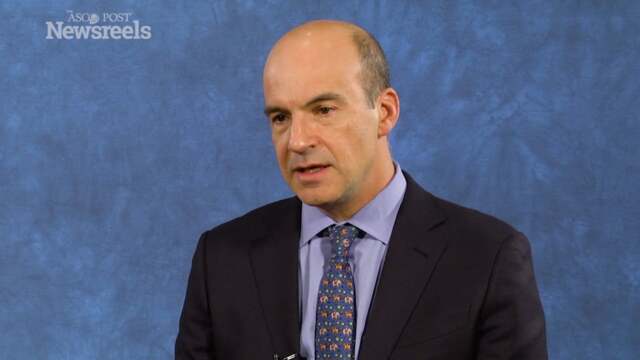Sara A. Hurvitz, MD, on HR-Positive, HER2-Negative Breast Cancer: Results of the neoMONARCH Trial
2016 San Antonio Breast Cancer Symposium
Sara A. Hurvitz, MD, of the UCLA Jonsson Comprehensive Cancer Center, discusses findings on the biological effects of abemaciclib in a neoadjuvant study for postmenopausal patients (Abstract S4-06).
Anne Hudson Blaes, MD, of the University of Minnesota, discusses the association between aromatase inhibitors, endothelial function, and early heart disease (Abstract S5-07).
Patricia A. Ganz, MD, of the UCLA Jonsson Comprehensive Cancer Center, summarizes two studies on using duloxetine for aromatase inhibitor–associated musculoskeletal symptoms, and aromatase inhibitors’ effect on endothelial function and heart disease (Abstracts S5-06 and S5-07).
Mothaffar Rimawi, MD, of the Smith Breast Center at Baylor College of Medicine, discusses phase II findings from a study evaluating pathologic complete response in patients with HR-positive, HER2-positive disease treated with neoadjuvant docetaxel, carboplatin, trastuzumab, and pertuzumab with or without estrogen deprivation (Abstract S3-06).
Peter Bach, MD, of Memorial Sloan Kettering Cancer Center, summarizes his plenary lecture on drug costs and their effect on the affordability of cancer care worldwide (Plenary Lecture 3).
S.P. Somashekhar, MBBS, MCh(Onco), of the Manipal Comprehensive Cancer Centre, discusses a study to assess the performance of IBM's artificial intelligence platform in comparison to a multidisciplinary tumor board (Abstract S6-07).





